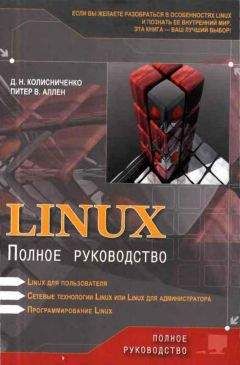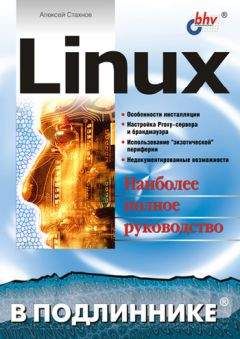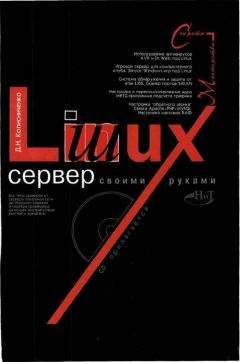Причина для put_user и get_user в том, что память в Linux (под архитектурой Intel, это может быть различно под некоторыми другими процессорами) сегментирована. Это означает, что указатель, отдельно не ссылается на уникальное место в памяти, а только на место в сегменте памяти, и Вы должны знать, который сегмент памяти нужен. Имеется один сегмент памяти для ядра и по одному на каждый из процессов.
Единственный сегмент памяти, доступный для процесса, это его собственный, так для нормальных программ, нет никакой потребности волноваться относительно сегментов. Когда Вы пишете модуль, обычно Вы хотите обращаться к сегменту памяти ядра, который обрабатывается системой автоматически. Однако, когда содержание буфера памяти должно быть передано между процессом в настоящее время имеющим управление и ядром, функция получает указатель на буфер памяти, который находится в своем сегменте процесса. Макрокоманды put_user и get_user позволяют Вам обращаться к нужной Вам памяти.
procfs.c
/* procfs.c - create a "file" in /proc, which allows
* both input and output.
*/
/* Copyright (C) 1998-1999 by Ori Pomerantz */
/* The necessary header files */
/* Standard in kernel modules */
#include <linux/kernel.h> /* We're doing kernel work */
#include <linux/module.h> /* Specifically, a module */
/* Deal with CONFIG_MODVERSIONS */
#if CONFIG_MODVERSIONS==1
#define MODVERSIONS
#include <linux/modversions.h>
#endif
/* Necessary because we use proc fs */
#include <linux/proc_fs.h>
/* In 2.2.3 /usr/include/linux/version.h includes a
* macro for this, but 2.0.35 doesn't - so I add it
* here if necessary. */
#ifndef KERNEL_VERSION
#define KERNEL_VERSION(a,b,c) ((a)*65536+(b)*256+(c))
#endif
#if LINUX_VERSION_CODE >= KERNEL_VERSION(2,2,0)
#include <asm/uaccess.h> /* for get_user and put_user */
#endif
/* The module's file functions ********************** */
/* Here we keep the last message received, to prove
* that we can process our input */
#define MESSAGE_LENGTH 80
static char Message[MESSAGE_LENGTH];
/* Since we use the file operations struct, we can't
* use the special proc output provisions - we have to
* use a standard read function, which is this function */
#if LINUX_VERSION_CODE >= KERNEL_VERSION(2,2,0)
static ssize_t module_output(
struct file *file, /* The file read */
char *buf, /* The buffer to put data to (in the user segment) */
size_t len, /* The length of the buffer */
loff_t *offset) /* Offset in the file - ignore */
#else
static int module_output(
struct inode *inode, /* The inode read */
struct file *file, /* The file read */
char *buf, /* The buffer to put data to (in the user segment) */
int len) /* The length of the buffer */
#endif
{
static int finished = 0;
int i;
char message[MESSAGE_LENGTH+30];
/* We return 0 to indicate end of file, that we have
* no more information. Otherwise, processes will
* continue to read from us in an endless loop. */
if (finished) {
finished = 0;
return 0;
}
/* We use put_user to copy the string from the kernel's
* memory segment to the memory segment of the process
* that called us. get_user, BTW, is
* used for the reverse. */
sprintf(message, "Last input:%s", Message);
for(i=0; i<len && message[i]; i++) put_user(message[i], buf+i);
/* Notice, we assume here that the size of the message
* is below len, or it will be received cut. In a real
* life situation, if the size of the message is less
* than len then we'd return len and on the second call
* start filling the buffer with the len+1'th byte of the message. */
finished = 1;
return i; /* Return the number of bytes "read" */
}
/* This function receives input from the user when the
* user writes to the /proc file. */
#if LINUX_VERSION_CODE >= KERNEL_VERSION(2,2,0)
static ssize_t module_input(
struct file *file, /* The file itself */
const char *buf, /* The buffer with input */
size_t length, /* The buffer's length */
loff_t *offset) /* offset to file - ignore */
#else
static int module_input(
struct inode *inode, /* The file's inode */
struct file *file, /* The file itself */
const char *buf, /* The buffer with the input */
int length) /* The buffer's length */
#endif
{
int i;
/* Put the input into Message, where module_output will later be able to use it */
for (i=0; i<MESSAGE_LENGTH-1 && i<length; i++)
#if LINUX_VERSION_CODE >= KERNEL_VERSION(2,2,0)
get_user(Message[i], buf+i);
/* In version 2.2 the semantics of get_user changed,
* it not longer returns a character, but expects a
* variable to fill up as its first argument and a
* user segment pointer to fill it from as the its second.
*
* The reason for this change is that the version 2.2
* get_user can also read an short or an int. The way
* it knows the type of the variable it should read
* is by using sizeof, and for that it needs the
* variable itself. */
#else
Message[i] = get_user(buf+i);
#endif
Message[i] = '�'; /* we want a standard, zero terminated string */
/* We need to return the number of input characters used */
return i;
}
/* This function decides whether to allow an operation
* (return zero) or not allow it (return a non-zero
* which indicates why it is not allowed).
*
* The operation can be one of the following values:
* 0 - Execute (run the "file" - meaningless in our case)
* 2 - Write (input to the kernel module)
* 4 - Read (output from the kernel module)
*
* This is the real function that checks file
* permissions. The permissions returned by ls -l are
* for reference only, and can be overridden here. */
static int module_permission(struct inode *inode, int op) {
/* We allow everybody to read from our module, but only root (uid 0) may write to it */
if (op == 4 || (op == 2 && current->euid == 0)) return 0;
/* If it's anything else, access is denied */
return -EACCES;
}
/* The file is opened - we don't really care about
* that, but it does mean we need to increment the
* module's reference count. */
int module_open(struct inode *inode, struct file *file) {
MOD_INC_USE_COUNT;
return 0;
}
/* The file is closed - again, interesting only because of the reference count. */
#if LINUX_VERSION_CODE >= KERNEL_VERSION(2,2,0)
int module_close(struct inode *inode, struct file *file)
#else
void module_close(struct inode *inode, struct file *file)
#endif
{
MOD_DEC_USE_COUNT;
#if LINUX_VERSION_CODE >= KERNEL_VERSION(2,2,0)
return 0; /* success */
#endif
}
/* Structures to register as the /proc file, with
* pointers to all the relevant functions. ********** */
/* File operations for our proc file. This is where we
* place pointers to all the functions called when
* somebody tries to do something to our file. NULL
* means we don't want to deal with something. */
static struct file_operations File_Ops_4_Our_Proc_File = {
NULL, /* lseek */
module_output, /* "read" from the file */
module_input, /* "write" to the file */
NULL, /* readdir */
NULL, /* select */
NULL, /* ioctl */
NULL, /* mmap */
module_open, /* Somebody opened the file */
#if LINUX_VERSION_CODE >= KERNEL_VERSION(2,2,0)
NULL, /* flush, added here in version 2.2 */
#endif
module_close, /* Somebody closed the file */
/* etc. etc. etc. (they are all given in
* /usr/include/linux/fs.h). Since we don't put
* anything here, the system will keep the default
* data, which in Unix is zeros (NULLs when taken as pointers). */
};
/* Inode operations for our proc file. We need it so
* we'll have some place to specify the file operations
* structure we want to use, and the function we use for
* permissions. It's also possible to specify functions
* to be called for anything else which could be done to
* an inode (although we don't bother, we just put NULL). */
static struct inode_operations Inode_Ops_4_Our_Proc_File = {
&File_Ops_4_Our_Proc_File,
NULL, /* create */
NULL, /* lookup */
NULL, /* link */
NULL, /* unlink */
NULL, /* symlink */
NULL, /* mkdir */
NULL, /* rmdir */
NULL, /* mknod */
NULL, /* rename */
NULL, /* readlink */
NULL, /* follow_link */
NULL, /* readpage */
NULL, /* writepage */
NULL, /* bmap */
NULL, /* truncate */
module_permission /* check for permissions */
};
/* Directory entry */
static struct proc_dir_entry Our_Proc_File = {
0, /* Inode number - ignore, it will be filled by proc_register[_dynamic] */
7, /* Length of the file name */
"rw_test", /* The file name */
S_IFREG | S_IRUGO | S_IWUSR,
/* File mode - this is a regular file which
* can be read by its owner, its group, and everybody
* else. Also, its owner can write to it.
*
* Actually, this field is just for reference, it's
* module_permission that does the actual check. It
* could use this field, but in our implementation it
* doesn't, for simplicity. */
1, /* Number of links (directories where the file is referenced) */
0, 0, /* The uid and gid for the file - we give it to root */
80, /* The size of the file reported by ls. */
&Inode_Ops_4_Our_Proc_File,
/* A pointer to the inode structure for
* the file, if we need it. In our case we
* do, because we need a write function. */
NULL
/* The read function for the file. Irrelevant,
* because we put it in the inode structure above */
};
/* Module initialization and cleanup ******************* */
/* Initialize the module - register the proc file */




